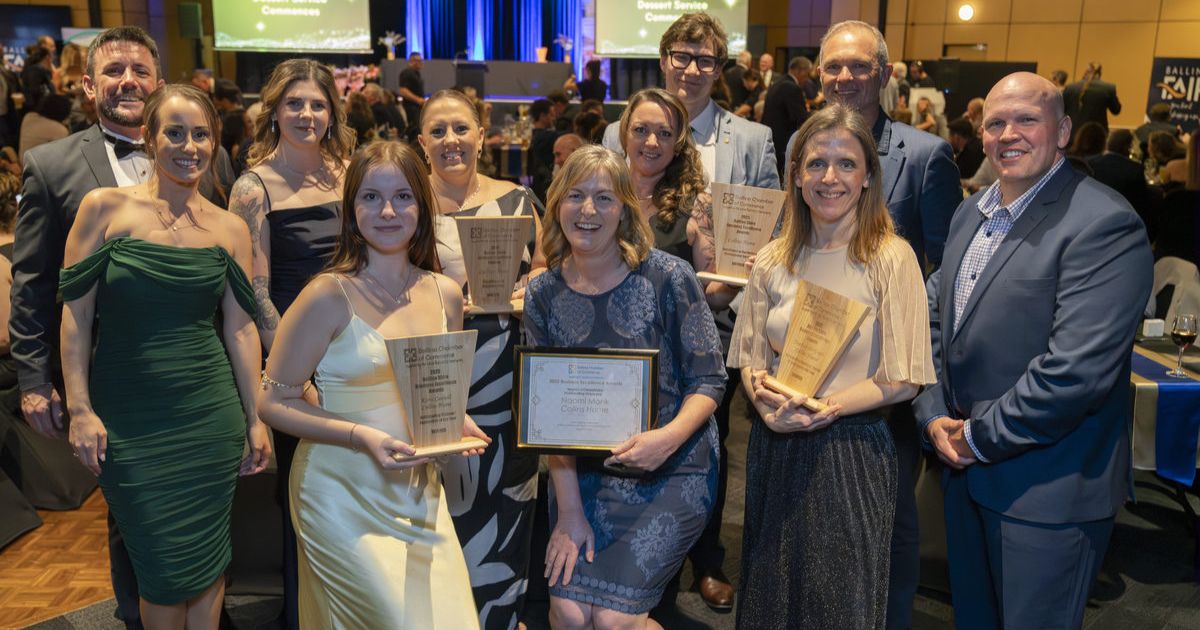Slowing the flow to improve water quality

Garry Lambert on his Boatharbour farm with Lismore MP Janelle Saffin and Anthony Acret from Rous County Council. Photo: CATHY ADAMS
AN eroded creek bank will soon become a showcase for effective water quality management, thanks to a NSW Government-backed initiative.
The $5 million project on Garry Lambert’s Boat Harbour property will focus on developing high-priority, shovel-ready efforts to improve water quality in the Tweed, Brunswick, Richmond, and Evans River catchments.
The Northern Rivers Watershed Initiative will work with landholders to revegetate and undertake weed control in catchment areas, improve soil health, address water quality in floodplain areas, increase water filtration and storage, and work to slow water flows in catchments.
Rous County Council’s catchment and cultural awareness manager Anthony Acret said the initiative was a large-scale strategy that was based on the premise of natural flood management.
“These sorts of approaches recognise that there’s no one-size-fits-all answer to the changes we’ve made to our catchments,” he said.
“There’s been a lot of community concern about the eco-health condition of the river for a long time.
“Of course, that was magnified by the impacts of the 2022 floods.
“So these nature-based solutions work in many ways to deliver outcomes.”
Lismore MP and NSW Parliamentary Secretary for Disaster Recovery Janelle Saffin said the initiative would benefit everyone.
“Water quality of some of our rivers has been tested as being of poor or very poor quality, so shifting the dial on that is a high priority for me and I believe it’s in everyone’s interest – townspeople, farmers, commercial and recreational fishers – to have cleaner waterways,” Ms Saffin said.

On Mr Lambert’s land, permeable dams will slow water flow in a creek feeding into the Wilsons River. Vegetation will be planted and fences will keep cows away from fragile areas to stabilise creek banks.
Mr Lambert saw the initiative as supporting the regenerative farming practices he and his wife had embraced.
“It’s the perfect way of making sure that we can be sustainable – that we maximise the capacity of the land but importantly, still keep production happening,” he said.
“Because we still need to feed people, we still need employment for people. But we need to manage the environment.”
Key projects in the Watershed Initiative include: Working with macadamia farmers in the Emigrant and Maguires Creek catchments; Strategic improvements in waterway condition to establish self-sustaining vegetated buffer zones that generate water quality and ecological benefits; Redesigned floodplain drainage to meet contemporary standards – working with landholders to conduct on-ground works within Keith Hall drainage system, South Ballina; Landscape hydration program: using natural flood management techniques to slow flows, retain soil fertility, and reduce runoff in rural catchments.
Work across 8220sq km will begin in October. The project is a partnership between Rous County Council, Lismore City Council, Richmond Valley Council, and Kyogle, Tweed, Byron, and Ballina shire councils, North Coast Local Land Services and the Northern Co-operative Meat Company.


















